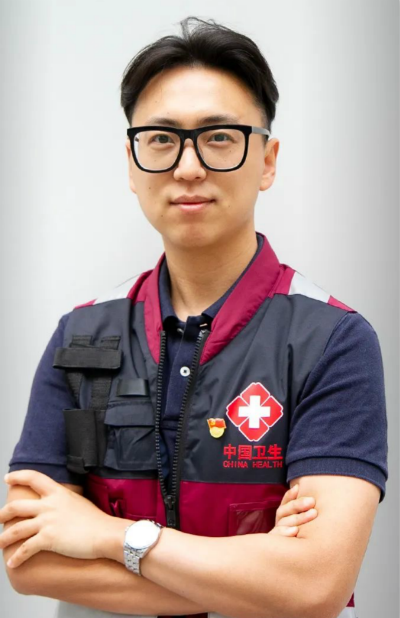Young Chinese 'virus hunter' stays on the frontline after 90-day fight in Wuhan
 0 Comment(s)
0 Comment(s) Print
Print E-mail Beijing Review, May 12, 2020
E-mail Beijing Review, May 12, 2020

Wang Ji, a frontline "virus hunter" who had conducted nucleic acid tests in Wuhan, Hubei Province, central China, for 90 days, missed a water salute -- the warmest sign of respect, honor and gratitude for heroes -- for him and his colleagues at the airport in Beijing on April 20.
Wang, a staff of the China Center for Disease Control and Prevention (CDC), had been dispatched to detect the novel coronavirus in Suifenhe, Heilongjiang Province, northeast China. Suifenhe, located at the China-Russia border and 2,680 km away from Wuhan, is facing a mounting challenge of imported cases.
"It is a pity that we missed the huge reception in Beijing, but assisting Suifenhe to fight against the virus is more important. We fought in Wuhan. Now we are fighting in Suifenhe. We are detecting for the novel coronavirus from the south to the north," he told Xinhua News Agency.
Nucleic acid testing is the most reliable test for detecting the novel coronavirus. It is a technique used to detect a particular nucleic acid sequence to identify a virus or bacteria that acts as a pathogen in blood, tissue and urine. "We are the people who are exposed most frequently to the virus and the closest to the virus," Wang said.
The first group of China CDC members arrived in Suifenhe on April 12. They built a mobile negative pressure laboratory on the first floor of the local CDC building. After installing equipment within five hours, they started to receive and analyze samples on the same day.
During the testing, the staff need to wear double layer of gloves, operating cap, protective suit and other personal protective equipment. Information attached to samples must be checked more than three times. Besides sample tubes, each step of the detection needs to be sterilized. It usually takes 19 minutes to extract the nucleic acid, and one and half hours for its amplification. Before getting test reports, they usually work for four hours without eating, drinking or going to the toilet. "Sample testing is a race against the time. The earlier, even one minute earlier, we find the positive cases, the less people will be infected," Wang said.

Back in January, Wang arrived in Wuhan and collected samples in the Huanan seafood market, on January 19. Despite the heavy workload and less than ideal living conditions, Wang remained energetic and inspired thanks to the support of the local people.
The housekeeping lady washed his clothes piled up in the hotel room, seeing he was too busy to do the laundry himself. "I was full of energy the next day not merely because of the clothes washed, but also the warmth and kindness of local people. Only by working hard can one be worthy of their love," he said.
While conducting tests for the virus in Wuhan, Wang and his colleagues had no idea when they could go back home. They were told that they could leave in advance if it was necessary but none of them deserted the frontline. They watched the profound changes in the city within the 90 days of their stay, from people preparing for the Spring Festival to the city being locked down and the gradual recovery and return to normalcy.
"We will bring the spring of Wuhan to Suifenhe, winning the battle against the epidemic in a timely manner," he said.






Go to Forum >>0 Comment(s)